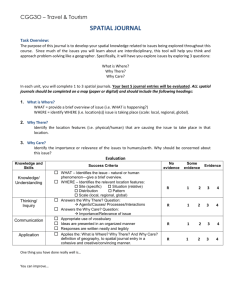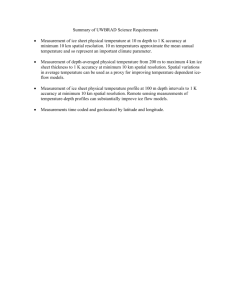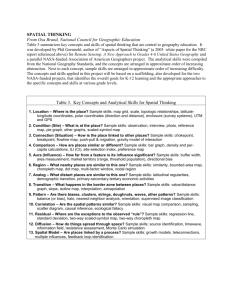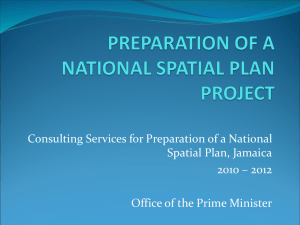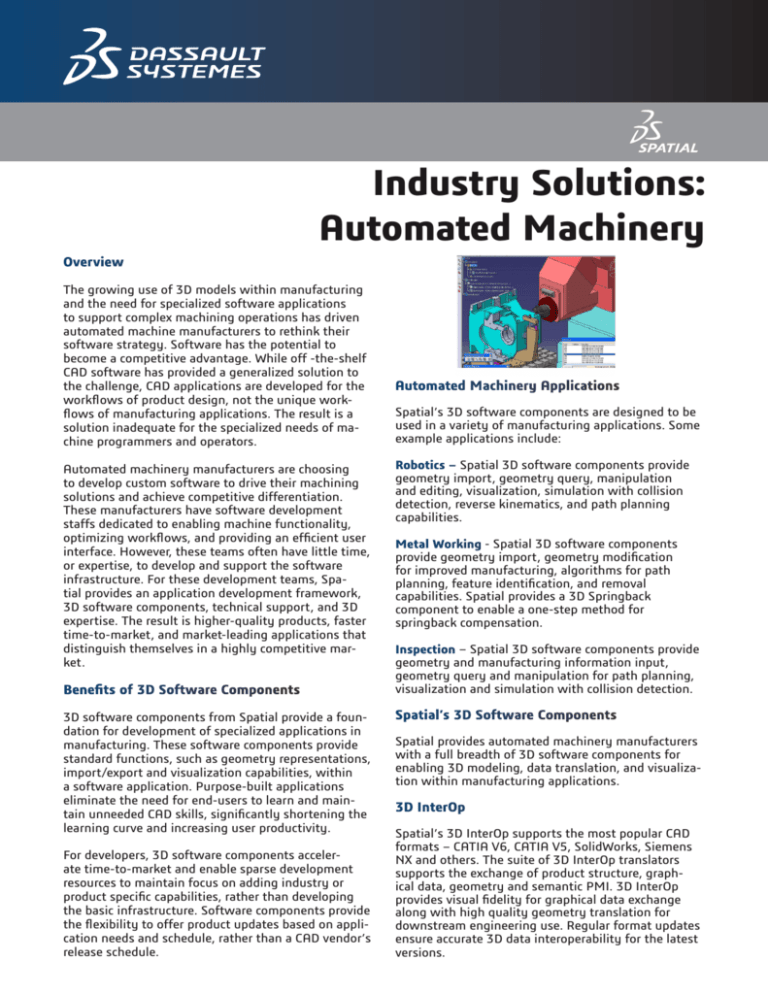
Industry Solutions:
Automated Machinery
Overview
The growing use of 3D models within manufacturing
and the need for specialized software applications
to support complex machining operations has driven
automated machine manufacturers to rethink their
software strategy. Software has the potential to
become a competitive advantage. While off -the-shelf
CAD software has provided a generalized solution to
the challenge, CAD applications are developed for the
workflows of product design, not the unique workflows of manufacturing applications. The result is a
solution inadequate for the specialized needs of machine programmers and operators.
Automated machinery manufacturers are choosing
to develop custom software to drive their machining
solutions and achieve competitive differentiation.
These manufacturers have software development
staffs dedicated to enabling machine functionality,
optimizing workflows, and providing an efficient user
interface. However, these teams often have little time,
or expertise, to develop and support the software
infrastructure. For these development teams, Spatial provides an application development framework,
3D software components, technical support, and 3D
expertise. The result is higher-quality products, faster
time-to-market, and market-leading applications that
distinguish themselves in a highly competitive market.
Benefits of 3D Software Components
3D software components from Spatial provide a foundation for development of specialized applications in
manufacturing. These software components provide
standard functions, such as geometry representations,
import/export and visualization capabilities, within
a software application. Purpose-built applications
eliminate the need for end-users to learn and maintain unneeded CAD skills, significantly shortening the
learning curve and increasing user productivity.
For developers, 3D software components accelerate time-to-market and enable sparse development
resources to maintain focus on adding industry or
product specific capabilities, rather than developing
the basic infrastructure. Software components provide
the flexibility to offer product updates based on application needs and schedule, rather than a CAD vendor’s
release schedule.
Automated Machinery Applications
Spatial’s 3D software components are designed to be
used in a variety of manufacturing applications. Some
example applications include:
Robotics – Spatial 3D software components provide
geometry import, geometry query, manipulation
and editing, visualization, simulation with collision
detection, reverse kinematics, and path planning
capabilities.
Metal Working - Spatial 3D software components
provide geometry import, geometry modification
for improved manufacturing, algorithms for path
planning, feature identification, and removal
capabilities. Spatial provides a 3D Springback
component to enable a one-step method for
springback compensation.
Inspection – Spatial 3D software components provide
geometry and manufacturing information input,
geometry query and manipulation for path planning,
visualization and simulation with collision detection.
Spatial’s 3D Software Components
Spatial provides automated machinery manufacturers
with a full breadth of 3D software components for
enabling 3D modeling, data translation, and visualization within manufacturing applications.
3D InterOp
Spatial’s 3D InterOp supports the most popular CAD
formats – CATIA V6, CATIA V5, SolidWorks, Siemens
NX and others. The suite of 3D InterOp translators
supports the exchange of product structure, graphical data, geometry and semantic PMI. 3D InterOp
provides visual fidelity for graphical data exchange
along with high quality geometry translation for
downstream engineering use. Regular format updates
ensure accurate 3D data interoperability for the latest
versions.
3D Modeling
Providing software developers and manufacturers
with the 3D modeling functionality necessary for
creating innovative, high-performance applications,
Spatial sets the standard. At the core of Spatial’s
modeling technology is a high-precision boundary
representation and a tightly integrated suite of curve,
surface, and solid modeling capabilities, providing
application developers with a comprehensive set
of functionality to solve today’s complex modeling
needs. Spatial delivers robust, flexible, industry-proven capabilities that enable quality-control, manufacturing, engineering and design application providers
to bring 3D applications to market in less time, at
lower development costs, and with less risk.
3D Visualization
Delivering a powerful, portable and complete graphics
development component for 3D applications, HOOPS
Visualize accelerates development of your high-performance applications. HOOPS Visualize helps you
efficiently deliver a competitive application with unparalleled graphics power, ability to interact with large
models, flexibility to deploy on multiple platforms
and advanced functionality tailored to match your 3D
requirements.
Shared Partner Success
Spatial is committed to ensuring you, our development partner, are successful. We work with you
sharing our expertise as well as our 3D components to
assist your development efforts and accelerate success.
Learn More About Spatial’s Automated Machinery Solutions:
www.spatial.com/industries/automated-machinery
Read Automated Machinery Case Studies:
www.spatial.com/resources/case-studies-automated-machinery
U.S. Corporate Headquarters
310 Interlocken Parkway, Ste. 200
Broomfield, CO 80021
Tel: +1 303-544-2900
Spatial EMEA Headquarters
Altenkesseler Str. 17/B6
D-66115 Saarbrücken Germany
Tel: +49 681 992 980
Learn more or request an evaluation at
www.spatial.com
Spatial Asia Headquarters
c/o Dassault Systemes K.K.
Pier City Shibaura Bldg 10F, 3-18-1 Kaigan,
Minato-ku, Tokyo 108-0022, Japan
Tel: +81 3 5442 4012
©2014 Spatial Corp. all rights reserved
2014-ds-v3.0

